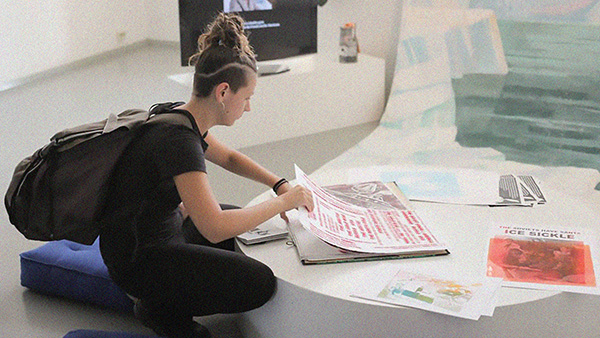Curating and Social Change: Collectivity, Empowerment and Disruption
Online course by Node Center for Curatorial Studies with The Creative Association of Curators TOK
Duration: Mar 07 – Apr 4, 2023
Live sessions: 2 hrs/week
Enroll before: Mar 3, 2023
How might curatorial and artistic practices foster social and political change? This course explores the concepts and methods of socially-oriented and community-based artistic projects that have political impact, both within and outside of the art world.
We will first explore how to develop infrastructures of solidarity and change by discussing principles and strategies of artistic self-organisation, including horizontality, exchange and knowledge-building.
The course will then focus on how artistic projects can build relations with different communities by integrating principles of social research into curatorial work. Case studies drawn from the arts, education and activist initiatives will show ways to reveal mechanisms of social and political injustice, such as geopolitical divisions or human and non-human rights violations.
We will finally consider how collective artistic projects can be forces for empowerment and disruption, especially across fields of media, youth education, public space and national borders.
This course is led by the Creative Association of Curators TOK, an international curatorial duo founded by Anna Bitkina and Maria Veits in 2010. TOK work at the intersection of contemporary art, the social sciences, architecture and socially-oriented design. They will draw on their extensive experiences and unique methods of socially-engaged practice to provide a practical and theoretical framework for those who want to implement political change through their artistic projects.
- Introduction of participants and TOK
- Introduction to the topic and overview of the program
- How to start an art institution or curatorial collective
- Horizontality, collectivity, kinship, practices exchange and knowledge-building
- How to build up a network with institutions, artists, and other creatives
- Building relations and collaborating with different communities
- Methodology of curatorial analysis and response to social and political transformations
- How to integrate principles of sociological research into curatorial work
- How to work across disciplines and with contributions from different fields of knowledge
- Studying the locality and positioning yourself in given conditions
- Art as a tool for political awareness and media literacy
- Artistic interventions into the state educational system
- Empowerment of young citizens through art and activism
- Public space and architecture as indicators of changing political ideology
- Methodologies for reclaiming public spaces by citizens
- Borders and the notion of geopolitical divisions
- Challenging the concept of citizenship
- New formats of migration and artistic nomadism
*Image: Shir Comay courtesy of TOK

